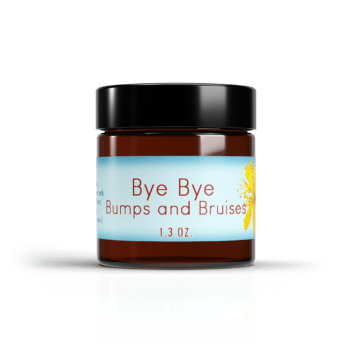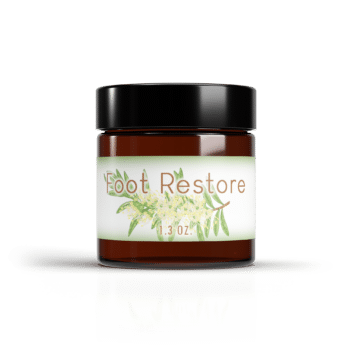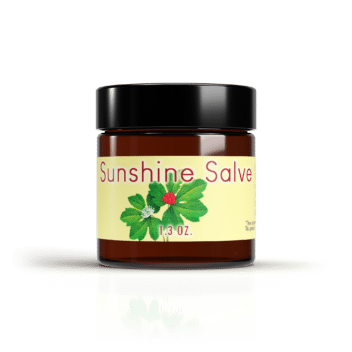
Vitamin E in Food and Herbal Medicine
Vitamin E in Food and Herbal Medicine
Vitamin E is a vital nutrient that plays a significant role in maintaining overall health. Known for its powerful antioxidant properties, vitamin E helps protect our cells from damage and supports immune function. It’s an essential part of a balanced diet, and understanding its benefits and sources can help you make informed choices about your nutrition. In this article, we’ll explore the benefits of vitamin E, its sources in food and herbal medicine, and how to incorporate it into your daily routine.
Understanding Vitamin E
Vitamin E is a fat-soluble vitamin found naturally in many foods. It exists in eight different forms, but alpha-tocopherol is the most active form in humans. As an antioxidant, vitamin E helps combat oxidative stress by neutralizing free radicals, which are harmful molecules that can damage cells and contribute to aging and diseases.
Chemical Structure and Forms
Vitamin E comprises eight different compounds, divided into two categories: tocopherols and tocotrienols. Each category contains four forms: alpha, beta, gamma, and delta. Alpha-tocopherol is the most studied and the most potent form in humans. Understanding the chemical structure helps in appreciating its varied roles in biological systems.
Role in Cellular Protection
As a potent antioxidant, vitamin E plays a crucial role in protecting cell membranes from oxidative damage. This protection extends to lipids within the membrane, preventing the chain reactions that can lead to cell damage. By preserving cellular integrity, vitamin E helps in maintaining healthy functioning tissues.
Interaction with Other Nutrients
Vitamin E does not work in isolation; it interacts with other nutrients to enhance its effectiveness. For instance, it works synergistically with vitamin C to regenerate its antioxidant capacity. Furthermore, selenium, a trace mineral, complements vitamin E’s function, highlighting the importance of a balanced nutrient intake.
Benefits of Vitamin E
The benefits of vitamin E are numerous, making it an important nutrient for maintaining good health.
Antioxidant Properties
Vitamin E is a powerful antioxidant, which means it helps protect cells from damage caused by free radicals. This protection is crucial in reducing the risk of chronic diseases and slowing the aging process. Antioxidants like vitamin E can prevent the oxidative stress that leads to diseases such as cancer and cardiovascular problems.
Immune System Support
Vitamin E plays a critical role in maintaining a healthy immune system. It helps the body fight off infections and diseases by supporting the production of immune cells. Enhanced immune function is particularly important for aging populations, where immune defense tends to decline.
Skin Health
Vitamin E is often used in skincare products because of its ability to protect the skin from damage caused by UV rays and pollution. It also helps in reducing inflammation and promoting skin healing. Its moisturizing properties make it a staple in anti-aging creams, contributing to skin elasticity and hydration.
Eye Health
Research suggests that vitamin E may help reduce the risk of age-related macular degeneration, a leading cause of vision loss in older adults. By protecting the eyes from oxidative stress, vitamin E supports vision health, particularly in environments with high exposure to sunlight and pollutants.
Heart Health
Some studies indicate that vitamin E may help reduce the risk of heart disease by preventing the oxidation of LDL cholesterol, which is a key factor in the development of atherosclerosis. Maintaining heart health through vitamin E intake can significantly impact longevity and quality of life.
Vitamin E Sources in Food
Vitamin E is found in a variety of foods, making it relatively easy to incorporate into your diet. Here are some of the best food sources of vitamin E:
Nuts and Seeds
Almonds, sunflower seeds, and hazelnuts are excellent sources of vitamin E. Just a small handful can provide a significant portion of your daily requirement. These foods are not only rich in vitamin E but also offer healthy fats and proteins, making them a great snack option.
Vegetable Oils
Oils such as sunflower, safflower, and wheat germ oil are rich in vitamin E. Using these oils in cooking or as a salad dressing can boost your intake. They add a delicate flavor to dishes while increasing the nutritional value of meals.
Leafy Greens
Spinach, Swiss chard, and kale are good sources of vitamin E. These vegetables can be easily added to salads, smoothies, or cooked dishes. They are also packed with other essential nutrients, such as vitamin K and iron, promoting overall health.
Fortified Foods
Many cereals and spreads are fortified with vitamin E, providing an additional source for those who may not get enough through natural food sources. Fortified foods are particularly useful for those with dietary restrictions or preferences limiting their natural vitamin E intake.
Fruits
Fruits like avocados, kiwis, and mangos contain vitamin E and offer a delicious way to enhance your intake. These fruits are not only rich in vitamin E but also provide fiber and other vitamins, making them a wholesome choice for a balanced diet.
Vitamin E in Herbal Medicine
Herbal medicine has long recognized the benefits of vitamin E, using various plants and herbs to harness its properties. Here are some herbal sources of vitamin E:
Alfalfa
Rich in vitamins and minerals, alfalfa is often used in herbal medicine for its health-promoting properties, including its vitamin E content. Alfalfa sprouts can be added to sandwiches and salads, contributing to nutritional diversity.
Dandelion
Known for its detoxifying effects, dandelion is also a source of vitamin E, supporting skin and overall health. Dandelion tea is a popular way to consume this herb, providing both hydration and nutrients.
Milk Thistle
Traditionally used for liver support, milk thistle contains compounds that act as antioxidants, including vitamin E. It is often consumed as a tea or supplement, known for its liver-cleansing properties.
Nettle
This herb is packed with nutrients, including vitamin E, and is often used to support joint health and reduce inflammation. Nettle tea or supplements can be an effective way to incorporate this herb into your routine.
Incorporating Vitamin E into Your Routine
Adding vitamin E to your daily routine is simple with a few mindful choices. Here are some tips to help you get started:
Balanced Diet
Ensure you consume a variety of vitamin E-rich foods daily. A balanced diet with nuts, seeds, leafy greens, and healthy oils can provide the necessary nutrients. Planning meals with a focus on diverse food groups helps in achieving nutritional goals.
Supplements
If you struggle to get enough vitamin E from food sources, consider taking a vitamin E supplement. Always consult with a healthcare professional before starting any new supplement regimen. Supplements can be particularly beneficial in addressing deficiencies or specific health conditions.
Skincare Products
Utilize skincare products containing vitamin E to protect and nourish your skin. Look for moisturizers, serums, and sunscreens with vitamin E as a key ingredient. Consistent use of these products can significantly enhance skin health and appearance.
Herbal Teas
Incorporate herbal teas from dandelion, nettle, or milk thistle to enjoy the benefits of vitamin E and other nutrients. Herbal teas are not only soothing but also offer a convenient way to increase your intake of various vitamins and minerals.
Conclusion
Vitamin E is a crucial nutrient that offers numerous health benefits, from protecting your cells to supporting your immune system and skin health. By incorporating vitamin E-rich foods and herbal sources into your diet, you can ensure you’re getting enough of this essential vitamin. Whether through food, supplements, or skincare products, vitamin E can play a vital role in your overall wellness strategy. By understanding its importance and sources, you can make informed decisions to enhance your health and well-being.



